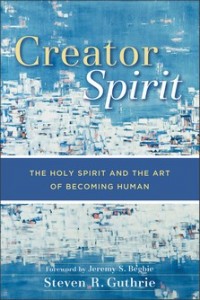 What is marriage for? Is marriage a social or cultural convention? Is it a silly obligation intended to “legalize” sex or short-circuit pleasure? Marriage actually has enduring purpose and and points away to deeper pleasure. God created marriage, male and female he created them, as a reflection of his relationship to us (Gen 1:27; 2:18-25; Eph 5). Marriage is by God and for God. Whenever we turn it around—marriage by us and for us—we mess it all up. It backfires. Inevitably, we all mess marriage up, which is why it’s so important that we know how to turn it around. We need a clear bearing on how we’re to exist as spouses. How does this marriage thing work?!
What is marriage for? Is marriage a social or cultural convention? Is it a silly obligation intended to “legalize” sex or short-circuit pleasure? Marriage actually has enduring purpose and and points away to deeper pleasure. God created marriage, male and female he created them, as a reflection of his relationship to us (Gen 1:27; 2:18-25; Eph 5). Marriage is by God and for God. Whenever we turn it around—marriage by us and for us—we mess it all up. It backfires. Inevitably, we all mess marriage up, which is why it’s so important that we know how to turn it around. We need a clear bearing on how we’re to exist as spouses. How does this marriage thing work?!
Marriage is by God and for God.
Marriage is a precious gift from God. When we respond to God about marriage, we bend it around his intention like a potter shapes a piece of wet clay, forming it into something stunning and useful. However, when we refuse to turn our marriages around, and reject what our marriages are made for, they devolve into competitive need-meeting, which eventually hardens, dries, and becomes brittle. When your need—not God—is in the middle of marriage it will crack. However, when our marriages are regularly splashed with the grace of God’s purpose, they can be shaped into something more beautiful and satisfying than any human can account for.
Beliefs About Marriage Matter
I have been married for eleven years. The second year was hell. Screaming matches, threats, curse words, tears, passive-agressive, pain, confusion, anger, withdraw. If we believed that marriage was about us, about getting our needs met, we would have walked away in year two. I’m so deeply grateful we didn’t. What moved us through a difficult year, and into thriving years, and later on through suffering years, and back into thriving years, was our common belief that marriage is not only a precious gift but also profound stewardship. To be more plain, we believed that marriage was penultimately about us and ultimately about God. We knew that we made a commitment to one another second and a commitment to God first.
Marriage is not only a precious gift but also profound stewardship.
Marriage is a profound stewardship before God. Sure, it is a wonderful gift but sometimes it doesn’t feel wonderful. And feelings do not get you through hell or suffering in marriage. What does and can get you through is truth. The truth about husbands and wives, when believed, so reshapes feelings that marriage becomes something molded, not around our expectations but around God’s expectations.
You Don’t Complete Me
God tells me that my marriage is a mysterious display of a greater relationship between Christ and the Church. That the husband sacrificially, humbly leads and the wife respectfully, lovingly follows. But my society tells me that my marriage exists for my happiness, that it is meant to “complete me” in some pipe-dream Jerry Mcguire sense. That we are two identical halves waiting to fit together. Nothing could be further from the truth. We are more like two puzzle pieces, very different, with egdes that need smoothing, but are meant to fit together with each playing its intended role in the overall picture of God’s wise and kind design. We are wonderfully equal but incredibly different.
My feelings tell me that marriage is relationship that should bring me substantial, if not inordinate satisfaction. God tells me that He alone can bring me inordinate satisfaction (Psalm 16:11). Our feelings often lie but God always tells the truth. When marriage messes up. When conflict, hell, or suffering come will God’s truth shape your feelings or will your feelings dictate a new “truth” (“I married the wrong person.” “This won’t work.” “We fell out of love.) These are need-centered, feeling-based cop-outs from God’s marital design.
Grace-shaped Marriage
Will marriage be about you and your needs or about God and his great purpose to shave off your edges and draw you closer into Him? Will marriage be by you and for you or will it be by God and for God? When marriage becomes less about us and more about God, we can settle into appropriate expectations and joy as husbands and wives. And when we return to God as our great Husband or Lover, we can love and respect, lead and follow in harmony. We will have a bearing on what God has made us for. What we believe about marriage matters, and when we believe what’s true we can experience joy in marriage. When we insist on what is false we harden. In God’s design, we can be so splashed by grace that marriage becomes not only a profound stewardship but also a precious gift, useful and stunning.
——
Read to grow your marriage in grace:
HT: ACL Blog
 Many of us practice our faith like it’s a cafeteria food tray, with all the different compartments for the entrée, veggies, the roll, and dessert. When we do this, we restrict Jesus to just one of the compartments, the dessert section, or if we are really spiritual, maybe the entrée. Christ is not permitted in the other sections of our lives. Jesus isn’t allowed into work ethic, family dynamics, or our entertainment. We worship him on Sundays, but treat our families or free time without a thought of Christ.
Many of us practice our faith like it’s a cafeteria food tray, with all the different compartments for the entrée, veggies, the roll, and dessert. When we do this, we restrict Jesus to just one of the compartments, the dessert section, or if we are really spiritual, maybe the entrée. Christ is not permitted in the other sections of our lives. Jesus isn’t allowed into work ethic, family dynamics, or our entertainment. We worship him on Sundays, but treat our families or free time without a thought of Christ.


